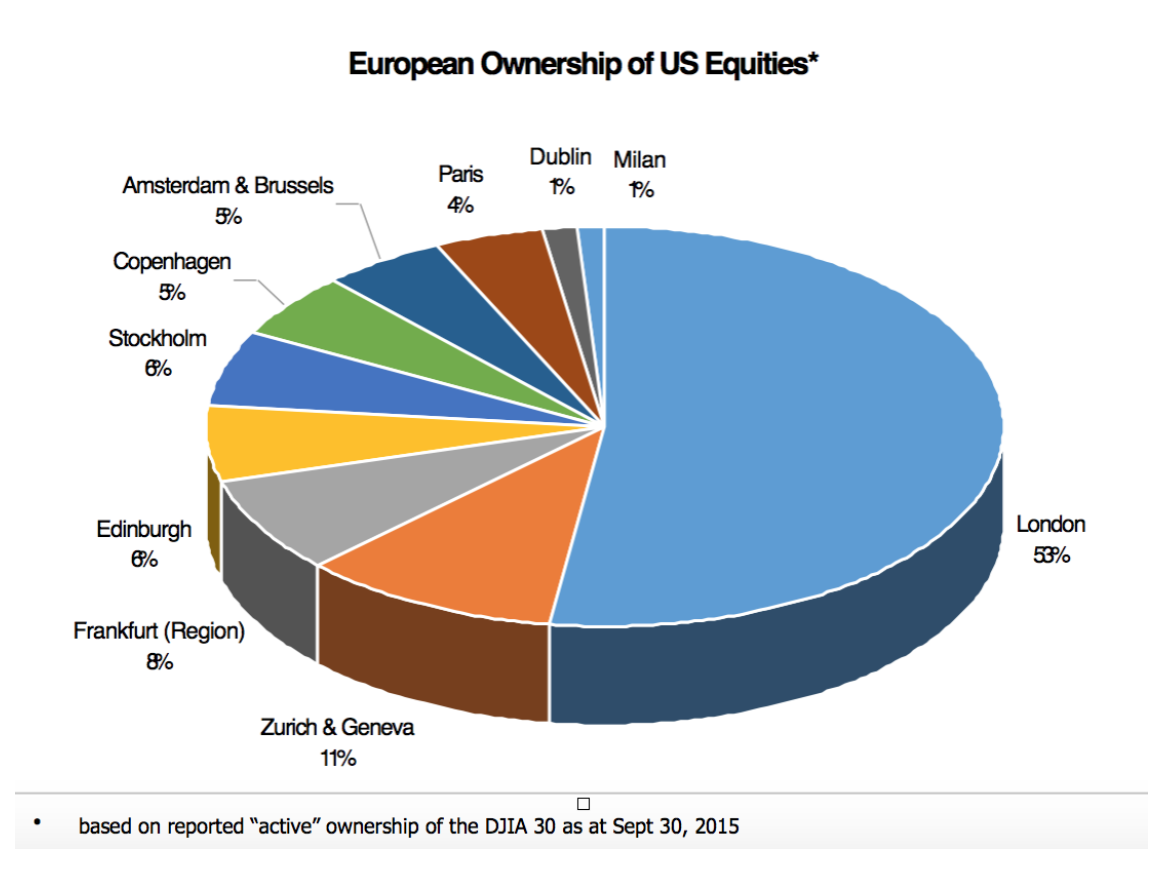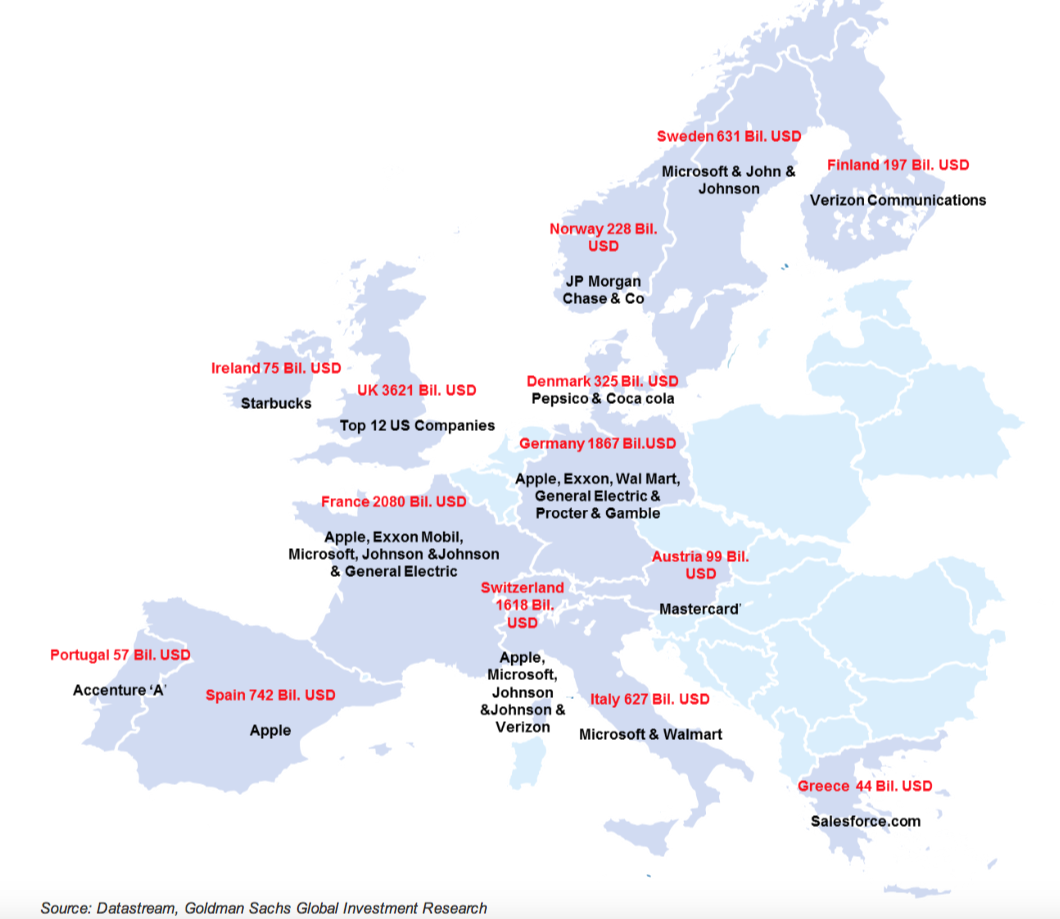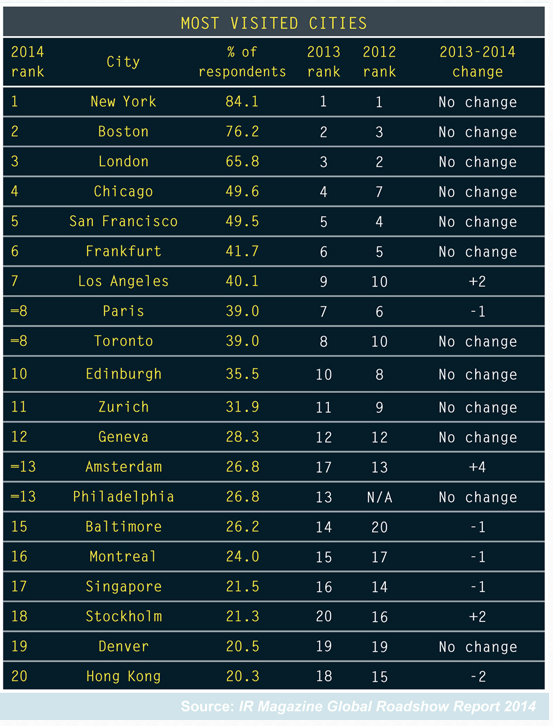The FCA’s Marc Teasdale (Head of the UK Listing Authority, FCA) delivered a speech entitled Investor engagement in a changing regulatory landscape at the Investor Relations Society Conference in London on 23 June 2015.
Here are some extracts regarding the FCA’s stance on Corporate Access:
“Back in 2012, an FSA supervisory review of conflicts of interest in the asset management sector uncovered the increasing use of dealing commissions to pay for this access. When we looked at this issue in detail, we had concerns that using this transaction cost mechanism to pay for access favoured firms generating the highest execution commissions with a broker, so potentially those trading more frequently, rather than the best long-term investors for the issuer.
We also found that amounts paid for meetings through dealing commission – which of course are costs the investment manager passes on to its clients in addition to management fees – were often much higher than similar services offered by non-broker third parties. We were also clear that the service provided did not meet our criteria for research that can be acquired with dealing commission.
We therefore clarified in May last year that dealing commission cannot be used to pay for corporate access. It is important to stress here that we were not banning corporate access itself, as we recognise that engagement between issuers and investors can be an important component of effective investor stewardship.
Investment managers can still pay for corporate access directly. But by removing the link with dealing commissions, we think this process, and the costs it involves, will be both more transparent and less impacted by potentially competing incentives. Since clarifying our rules, we have seen firms taking steps to better manage costs and conflicts of interest in this area, as well as innovation to facilitate more direct access between investors and issuers.”
————————-
“Our policy analysis and response on this subject, being closely informed by the results of this review, supported the principle of further separating the acquisition of research by investment managers from the dealing commission mechanism. In our view this would produce a number of positive outcomes including:
- the reform of market practices which are currently subject to inherent conflicts of interest
- greater transparency over the use of investors’ funds, which in turn should lead to increased accountability in the use of those funds – both for research, and when assessing the costs of executing trades
- and the creation of a more level playing field in the market for the provision of research, allowing a greater range of market participants to provide offerings more closely matched to the needs of clients
Of course, the debate in relation to the connection between research and dealing commission has now very much moved to the European stage, due to the development of proposals under MIFID II.
ESMA provided its final advice to the European Commission in December 2014 on detailed proposals to support the new MIFID II Directive, including in the area of research and inducements. Under ESMA’s final proposals, an investment manager can purchase research provided it is paid for either directly by the firm out of its own resources, or through a ‘research payment account’ funded by a specific, separate charge to their client, which is agreed and disclosed upfront. This charge must be based on a research budget set by the client, and cannot be linked to execution volumes or value.
We anticipate that the Commission is likely to adopt the proposals by the summer, which will then be subject to formal scrutiny by the Parliament and Council. We will then need to put the final proposals into our domestic legislation and rules, and we hope to consult formally on this by the end of the year.
Whilst the nature of research that can be paid for via the new ‘research payment account’, and so charged to clients, is likely to depend on the final Commission text or potentially future ESMA guidelines, our view is that corporate access will remain a service that should be paid for directly by the investment manager.
We remain supportive of these EU proposals, as we believe they would significantly improve the accountability of investment managers over their procurement and use of external research on behalf of their customers, leading to better controls of costs in the sector. This is not about cutting research spending or undermining EU asset managers’ competitiveness, but rather about ensuring investment managers buy the right research, at the right price, and are open and transparent with their customers on the costs they will charge on to them.
We think the proposed reforms will lead to a more efficient allocation of resources toward research that adds the most value to asset managers’ investment decisions. This should create a clear opportunity for research from more specialised providers, including in the coverage of SMEs. Unbundling fees and services by brokers will enable proper pricing and competition in the research market, which should result in better products and services from a more diverse array of providers than under the current model.”
Link to the full speech: https://www.fca.org.uk/news/investor-engagement-in-changing-regulatory-landscape
 joined Sarasin & Partners in 2016 from Allianz Global Investors where he spent 12 years. Prior to this he spent three years at Isis Asset Management (now BMO Global), five years at Schroders and five years as a British Army Officer. He has a degree in PPE from Oxford University.
joined Sarasin & Partners in 2016 from Allianz Global Investors where he spent 12 years. Prior to this he spent three years at Isis Asset Management (now BMO Global), five years at Schroders and five years as a British Army Officer. He has a degree in PPE from Oxford University.




